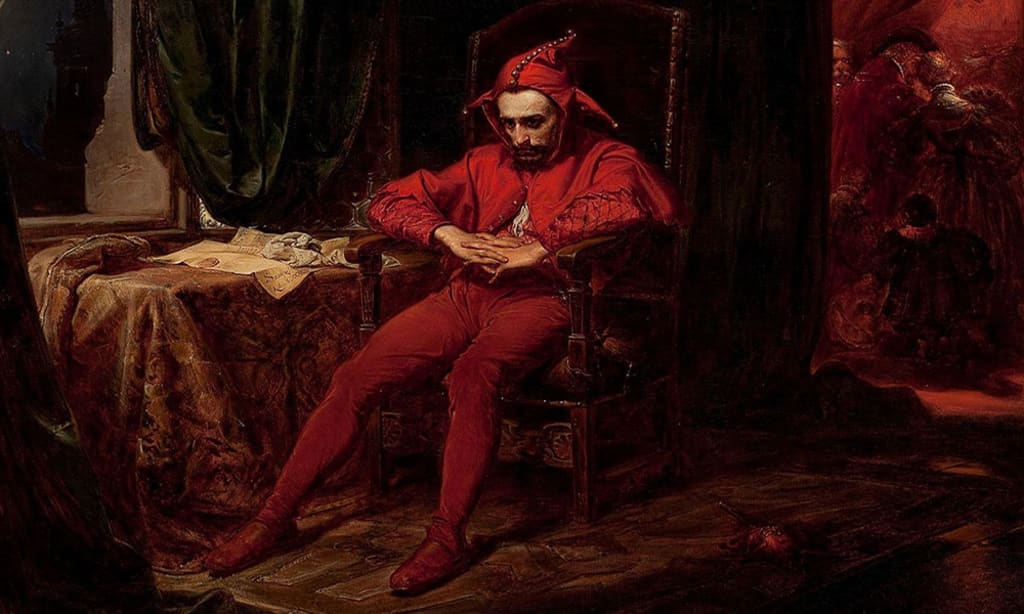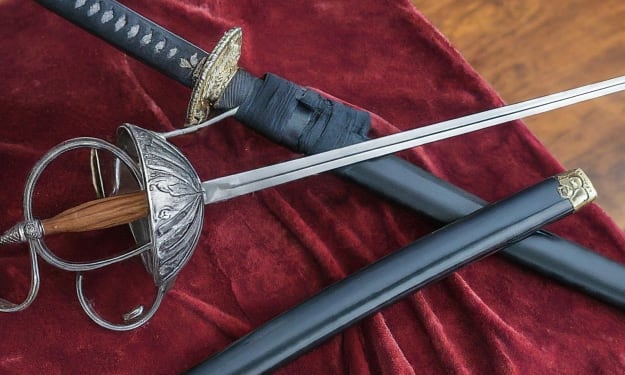
Tenth century buffoon Jing Xinmo
may have violated when he got pursued by a canine,
then, at that point, teasingly told the Chinese head
that he shouldn't allow his children to circumvent gnawing individuals.
The head disapproved and prepared a bolt on Jing.
In any case, rather than asking for his life, Jing told another wisecrack.
Fortunately, this joke landed — so the head's bolt didn't.
As opposed to normal conviction,
entertainers weren't simply a middle age European peculiarity,
however, prospered in different times and societies.
The main dependably recorded entertainer is believed to be You Shi,
of seventh century BCE China.
That's what he pronounced, as an entertainer, his words couldn't give offense.
This honor was essential to the buffoon's situation —
be that as it may, was at times abused.
Jokesters had exceptional connections to drive:
they could be seen as objects of joke
and furthermore as performers and confided in partners.
Individuals became entertainers by different courses.
They could be designated because of physical or neurological contrasts,
culled from a pool of performers, or enlisted by a voyaging squire.
Such was the situation when an illustrious worker
composed Ruler Henry VIII's central clergyman during the 1530s.
He prescribed a little fellow to supplant the ruler's maturing entertainer, Sexten,
with the confirmation that he'd be considerably more charming than Sexten at any point was.
A few buffoons flaunted exceptional gifts, as Roland the Farter,
of Henry II's twelfth Century court.
Each Christmas, he played out a unique daily practice,
the finale of which was a synchronous leap, whistle, and fart.
Furthermore, entertainers could impact significant choices.
For instance, if the comedians of the Tübatulabal country
of the Sierra Nevada mountains
thought a boss was driving inadequately,
they could evidently get the seniors to delegate another one.
Also, obviously, Jing Xinmo knew how to influence the Chinese head.
A neighborhood judge once mentioned that the head quit stomping on farmland
during his hunting binges.
Irritated, the head had the justice pulled before him.
Jing jokingly proposed that the officer be killed right away
furthermore, that the ruler let the laborers starve
rather than gathering the land and settling charges,
all so he could jog about uninhibitedly.
Probably seeing the craziness of his own way of behaving,
the sovereign giggled and exonerated the justice.
In 1596, a French man was sentenced to death.
Be that as it may, Mathurine, one of the somewhat barely any female jokesters on record,
mediated in kind for installment.
With her assistance, the man's significant other effectively begged Lord Henry IV
for her significant other's life.
Albeit uncommon, jokesters were in some cases terminated or even killed
for taking their joke or analysis excessively far.
In 1638, Scottish entertainer Archy Armstrong
demolished his all around combative relationship
with the Ecclesiastical overseer of Canterbury.
The Ecclesiastical overseer had as of late amended the Scottish Book of Normal Petition —
a demonstration that earned solid resistance and induced riots.
Making a move to additionally embarrass him,
Archy asked the Ecclesiastical overseer, "Who's the moron now?"
For which he was ousted from the court.
After three years, after the Ecclesiastical overseer's capture,
a flyer started coursing that derided him,
which was supposed to be crafted by, in all honesty, Archy.
In the mean time, a few jokesters straightforwardly taunted their imperial supervisors without outcome.
eleventh century Persian entertainer Talhak proposed the ruler was a cuckold,
suggesting his better half was untrustworthy to him.
At some point, as the ruler laid his head on Talhak's knee,
he is said to have asked, "What is your connection from cuckolds' point of view?"
To which Talhak answered, "I'm their pad."
Furthermore, when nineteenth century Persian shah found out if there was a food lack,
entertainer Karim Shir'ei kidded,
"Indeed, I see Your Highness is eating just five times each day."
In any event, when rulers were viewed as supernaturally named,
a few buffoons figured out how to talk truth straightforwardly to control,
what's more, uncover — in such countless questions, jokes, or dramas —
who the genuine idiots were.





Comments
There are no comments for this story
Be the first to respond and start the conversation.